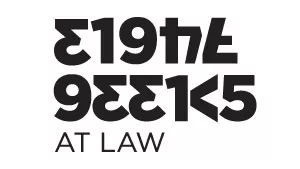- within Technology topic(s)
- in United States
- within Technology topic(s)
- within Corporate/Commercial Law and Finance and Banking topic(s)
- in United States
INTRODUCTORY CONCEPTS
Blockchain
A digital record-keeping system in which transaction details are held in blocks of information. A new block is attached to the chain of existing blocks via a computerized process that validates transactions.
Cryptocurrency/Crypto asset (Crypto)
Cryptocurrency is a type of digital or virtual money designed to work as a medium of exchange. It uses cryptographic techniques to secure transactions, control the creation of new units, and verify transfers of assets. Cryptocurrencies operate on decentralized networks, often using blockchain technology, which ensures transparency and eliminates the need for intermediaries like banks.
Stablecoins
A stablecoin is a type of cryptocurrency designed to maintain a stable value by being pegged to a reserve asset, such as a fiat currency (like the US dollar), a commodity (like gold), or a basket of assets. This stability makes stablecoins less volatile than other cryptocurrencies, making them useful for transactions, savings, and as a bridge between traditional and digital currencies. An example is the USDC, whose value is pegged to the US dollar.
Central Bank Digital Currency (CBDC)
A CBDC is a digital form of a country's official currency issued and regulated by its central bank. Unlike cryptocurrencies, CBDCs are centralized and represent a direct liability of the central bank, similar to physical cash
Legal tender
Legal tender refers to a form of money that a government officially recognizes as acceptable for settling debts and paying for goods and services. It must be accepted within the country for all monetary obligations unless otherwise agreed. For example, in Ghana, the Ghana cedi is the legal tender.
COUNTRIES AND THEIR EXISTING FRAMEWORKS
The regulatory responses to crypto have varied across Africa. These responses can be grouped into three main categories: Prohibited, Permissive/In Progress, and Unregulated.
Prohibited refers to countries that have outright banned the use of cryptocurrency. In such countries, using crypto may result in criminal sanctions.
Permissive/In progress refers to countries that have an existing regulatory framework or are in the process of creating regulations to govern cryptocurrency.
Unregulated refers to countries that have yet to address the use of crypto within their borders. These countries have neither issued prohibitory notices nor drafted regulations/legislation.
OVERVIEW OF SOME AFRICAN COUNTRIES AND THEIR EXISTING FRAMEWORK REGARDING CRYPTOCURRENCY
| PROHIBITED | PERMISSIVE/IN PROGRESS | UNREGULATED |
|---|---|---|
| Egypt | Central African Republic | Cameroon |
| Ethiopia | Kenya | Sierra Leone |
| Morocco (ban is still in force but there is draft regulation in review) | South Africa | Congo |
| Lesotho | Ghana | |
| Tanzania | Mauritius | |
| Seychelles |
||
| Nigeria |
SPOTLIGHT ON GHANA
Previous Developments
Since 2018, the Bank of Ghana (the Bank) has issued multiple notices (NO.BG/GOV/SEC/2018/02) stating that Bitcoin and other cryptocurrencies are not regulated in Ghana and have advised the general public to be cautious about cryptocurrency transactions.
In 2022 (Notice NO.BG/GOV/SEC/2022/03), the Bank reaffirmed this position and instructed all licensed institutions to refrain from facilitating cryptocurrency transactions. The Securities and Exchange Commission (SEC) also issued a notice in 2019 (SEC/PN/003/03/2019), clarifying that it does not regulate cryptocurrency exchanges.
Current Status
Cryptocurrencies remain unregulated in Ghana, with no specific regulatory framework to date. Banks and licensed financial institutions are still prohibited from facilitating cryptocurrency transactions. Despite the absence of a dedicated regulatory framework, the Bank of Ghana, in August 2022, launched a Regulatory Sandbox aimed at supporting innovative financial products and services, including blockchain and cryptocurrency technologies. Open to licensed institutions, FinTech start-ups, and crypto-related businesses, the sandbox aims to offer temporary regulatory exemptions to address risks, consumer safeguards, and compliance in the fintech ecosystem.
Future Outlook
In August 2024, the Bank released an exposure draft titled Draft Guidelines on Digital Assets. This document outlines proposed rules for regulating digital assets in Ghana. Stakeholders were urged to submit feedback by August 31, 2024, as their input to help shape the future of digital asset regulation in Ghana
SPOTLIGHT ON NIGERIA
Previous Developments
On 12 January 2017, the Central Bank of Nigeria (the CBN) instructed banks and other financial institutions to avoid using, holding, or transacting in virtual currencies.
In February 2021, the CBN directed financial institutions to cease any involvement with cryptocurrency transactions.
On 11 September 2020, the Nigerian Securities and Exchange Commission (the NSEC) issued a statement recognising virtual/digital assets as securities. Subsequently, in May 2022, NSEC introduced the New Rules on Issuance, Offering Platforms, and Custody of Digital Assets (the Rules). These Rules addressed the classification of digital assets as securities and established requirements for registering Virtual Asset Service Providers (VASPs), digital asset custodians, and exchanges. The Rules were amended in March 2024.
In December 2023, the CBN issued guidelines governing the operation of bank accounts for VASPs.
Current Status
The regulatory framework remains under development. The Rules were amended in March 2024 with a further amendment in December 2024 which introduced Digital Asset Intermediaries as firms that are to apply for licensing among other additions. As at August this year, the Commission had granted approvals in principle to two digital asset exchanges, allowing them to operate within the Accelerated Regulatory Incubation Program (ARIP). Five (5) other firms have been admitted into the NSEC's Regulatory Incubation Program to test their models and technology.
Future Outlook
The Accelerated Registration and Incubation Programme (ARIP) expedites entity onboarding by granting provisional approval (referred to as Approval in principle) while the Digital Assets Rules are finalized. It provides regulatory guidance to participants and helps the Commission refine its rules to address market integrity, investor protection, and anti-money laundering. The deadline to apply for this program was 30 days after the Framework was issued on June 21, 2024, but the SEC is still accepting applications.
SPOTLIGHT ON SOUTH AFRICA
Previous Developments
The Financial Sector Conduct Authority (the FSCA) in October 2022 declared crypto assets to be financial products (General Notice 1350 of 2022) under the Financial Advisory and Intermediary Services (FAIS) Act; requiring all firms who provided certain financial services to be licensed by the FSCA. This move positioned the FSCA as regulator and brought all Crypto Assets Service Providers (CASP) that provide the following financial services; advice, intermediary, and investment management under the FAIS Act. The FSCA stated November 2023 as the deadline for all existing service providers to apply for licenses under the regulatory regime.
Current Status
By December 2024, 248 CASPs had obtained licenses, and additional applications were under review. In a circular issued in June 2024, the FSCA reiterated that its regulatory authority only covered CASP licensing and that the licensing had not changed the South African Reserve Bank's position on crypto not being legal tender in the country.
SPOTLIGHT ON KENYA
Previous Developments
The Central Bank of Kenya (the CBK) banned using cryptocurrencies as legal tender in 2015. However, the Finance Act of 2023 introduced a 3% Digital Assets Tax on crypto transactions, which includes airdropped tokens, token swaps, and NFTs.
Current Status
In December 2023, the Kenyan Parliament approved the Capital Markets (Amendment) Bill, which, among other things, will classify crypto assets as securities. The Blockchain Association of Kenya has also drafted a bill for the country regarding Virtual Assets Service Providers (VASPs).
Future Outlook
The formalisation of the Capital Markets (Amendment) Bill is anticipated to reinforce the classification of crypto assets as securities, necessitating compliance from individuals or entities introducing cryptocurrencies into Kenya.
KEY CONSIDERATIONS FOR AFRICA
The regulation of cryptocurrency in Africa requires a nuanced approach, given the continent's unique economic, social, and technological landscape. Key considerations include:
- Economic inclusion: Regulation across Africa must balance accessibility with consumer protection;
- Consumer protection (AML and illicit activities): Regulatory frameworks should incorporate increased transparency and disclosure requirements in accordance with global standards; and
- Consideration of cultural, geopolitical, and social factors: Community engagement and culturally sensitive educational campaigns will be vital for establishing an "Africa-friendly" crypto regulatory framework.
The content of this article is intended to provide a general guide to the subject matter. Specialist advice should be sought about your specific circumstances.



